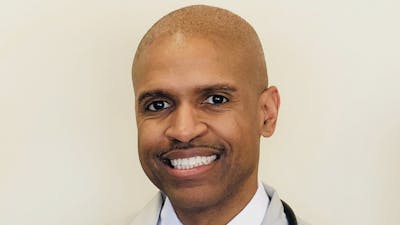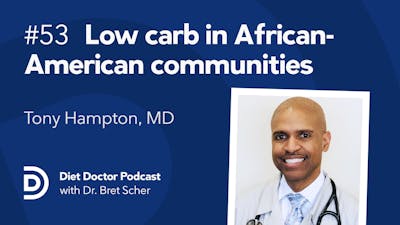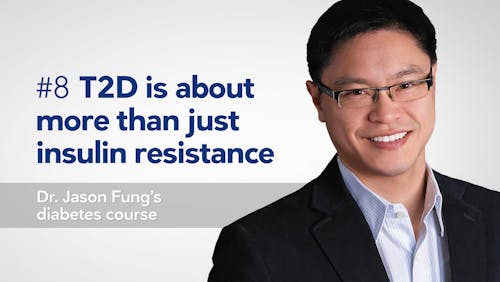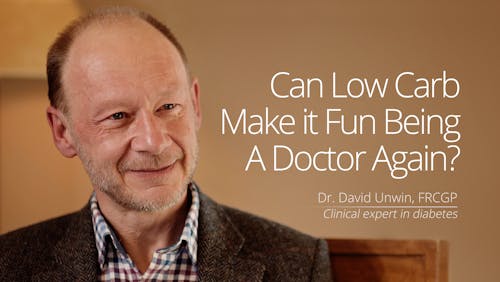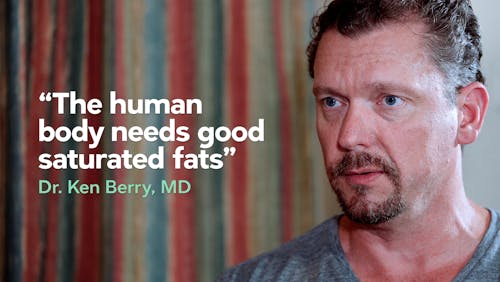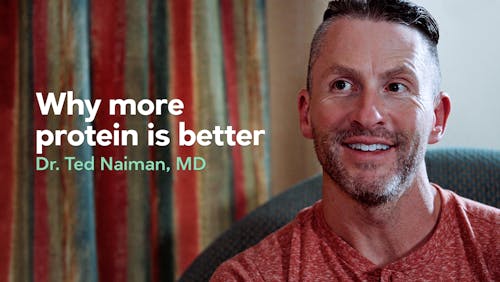Dr. Hampton: Prioritize sleep for weight loss and health

Photo: Spencer Bibbs
Dr. Tony Hampton is a family physician on the South Side of Chicago. He is writing a monthly column for Diet Doctor. This is his fifth column.
When I was a young doctor in training, going more than 24 hours without sleep was expected. It proved that you were tough and strong, that you could handle the demanding pace of medicine.
We’d boast about how long we’d been awake, but then driving home from work I’d almost fall asleep at a stoplight. I’d struggle to stay awake when a patient gave their medical history. Going without enough sleep wasn’t good— for me and my health, for my patients, or for how I was interacting with the world!
Over the years I’ve heard a lot of people — patients, business people, celebrities — brag about how they just need four or five hours of sleep as if it’s a superpower.
But the real superpower, for your health and your weight, is to prioritize your sleep. That means you should be doing everything you can to get a good night’s sleep so that you wake up rested and refreshed.For most people that is getting somewhere between 7 and 9 hours of shut-eye. Babies, young children, and teens need even more.
If you’ve been reading my columns here at Diet Doctor you know that I always tell patients to make sure to protect their NEST. The S in NEST acronym stands for both stress and sleep, which are two sides of the same coin. (To recap, the letters are: Nutrition, Exercise, Stress/Sleep, Thoughts/Trauma.)
This column is going to focus on why sleep is so necessary for health and happiness, and even for weight control. It will also give some tips for how you know if you are getting enough and what to do to get a better night’s sleep.
Finally, it will highlight when you might need to seek help for sleep problems like sleep apnea, chronic insomnia, and other sleep disorders.
As essential as breathing
Did you know that you can go about three minutes without air, about four days without water, and only about nine days without sleep?
Our need for sleep is more immediate than food. We can last much longer without eating, but most people will start having physical and cognitive difficulties by 48 hours and outright hallucinations by 72 hours without sleep.
Why is sleep so essential? For something that takes up a third of our life, sleep still holds a lot of mysteries. But we do know that many biological repair processes and basic maintenance of body functions take place during sleep. We make antibodies, clear infections, get rid of cellular waste, rest and restore our brain, and boost our immune system.
When you don’t get enough sleep your immune system weakens, inflammation increases, and brain function is undermined. You’re apt to be irritable, forgetful, and make poor decisions after even one night of bad sleep.A brain that is regularly deprived of sleep may also lead to depression, anxiety, or other mental health issues. While it is not confirmed, it’s suggested that chronic sleep deprivation may even play a role in future cognitive impairment, such as increasing the risk for Alzheimer’s disease.
How does poor sleep contribute to obesity, diabetes, and metabolic issues? It’s known that lack of sleep raises the stress hormone cortisol and increases glucose production, which raises your blood sugar.
Studies have shown that markers of increased insulin resistance appear after just one night of partial sleep deprivation. Symptoms of prediabetes can arise with as little as five days of sleep disturbances. Blood pressure also increases with sleep deprivation.
Other studies show that when you are sleep deprived, the hunger hormone ghrelin increases while leptin decreases, which leads to increased hunger and cravings. You are more apt to overeat, especially on unhealthy foods, to consume more calories, and to experience emotional or stress eating when you are sleep deprived.So it’s clear: getting enough sleep is one of the top things our bodies need to thrive and survive.
Are you getting enough sleep?
Patients are often very concerned about whether they’re getting enough good-quality sleep. Not everyone needs the same amount. Here are some ways to tell if you’re getting enough:
In addition, if you find yourself being irritable and angry, or easily upset you may not be well-rested.
Don’t fret if you get one or two nights without good sleep. One way to undermine your sleep quality is to be overly worried and stressed about your sleep.
Just prioritize getting to bed at a good time and follow some good sleep habits, as outlined in the next section.
How to improve sleep
There are a number of proven ways to get a better night’s sleep. These largely involve setting up a relaxing sleep routine and creating a better sleep environment. Some of these are done right before bed, but some are done during the day in order to set you up for a night of better sleep.
Establish a sleep routine:
- Go to bed and wake up at the same time, seven days a week, to establish a circadian rhythm.
- Have a relaxing pre-bed ritual that readies you for sleep. This can be as simple as brushing your teeth and washing your face, dimming the lights; or can include breathing exercises or meditation.
- A warm bath before bed can help some people relax and sleep more soundly.
- Jot worries, “to-do” lists, or other repetitive thoughts on a pad beside the bed to get them out of your head. (If you wake up in the middle of the night worrying, jot worries on the pad.)
- Avoid any provoking or upsetting activities close to bedtime, which can include scary books or movies, arguments, work emails, etc.
- If you are having trouble falling asleep or going back to sleep after awakening, do not lie in bed worrying. Do something relaxing until you feel tired.
- Consider taking a magnesium supplement before bed to help relax muscles and prevent leg cramps. A magnesium cream that is massaged into muscles can help, too.
Watch what you eat and drink:
- Stop caffeine by 2 pm, or by noon, if caffeine sensitive — remember it’s not just coffee but tea, chocolate, and some energy drinks.
- Stop alcohol at least three hours before bedtime – it disrupts sleep quality.
- Stop eating at least three hours before bedtime.
- Drink water earlier in the day, and avoid drinking it and other fluids too close to bedtime.
Create a positive sleep environment
- Have a cool, dark room with a comfortable bed, pillows, and bed coverings.
- If noise and light disrupt your sleep, use earplugs or a white noise machine; wear eyeshades or invest in blackout curtains.
- Blue light from device screens is a known sleep disruptor. Try to stop all screens at least 30 minutes before bedtime.
Do daytime activities for better nights
- Get regular exercise during the week, but stop vigorous exercise at least four hours prior to bedtime.
- Get exposure to sunlight in the morning or use a “light therapy box” or “mood light.” Natural light resets your circadian rhythm.
- If stress is impacting your sleep, check out my column last month about ways to manage stress.
When to see your doctor
Some sleep issues may need some help or further assessment from your family doctor.
Sometimes a short-term prescription for a sleeping pill — less than two weeks — is appropriate and can get people through stressful situations and help them get back into a good sleep pattern. The death of a loved one, a health crisis, even recovering from severe jet lag, might need one or two nights of a prescription sleep medication. But do avoid using sleep pills long-term.
Chronic insomnia that is getting worse, suspected sleep apnea, restless leg syndrome, and excessive daytime sleepiness are examples of sleep issues that benefit from a medical assessment.
If you share your bed with a partner, often he or she will be the one who lets you know you should get a sleep assessment. They may be the ones disturbed by the excessive snoring and disrupted breathing of sleep apnea or kicked by a restless leg.
I no longer brag about going hours without any sleep. Now I love sleeping. I make sure I get to bed by 9:30 pm every night and wake at 4:30 am each morning. That’s what works best for me and my busy life.
If I’ve had a bad night’s sleep, I don’t worry about it, I just try to prioritize sleep the next night.
You might have to experiment to find out what bedtime and rising time works best for you and what creates a reliable sleep routine.
The US National Sleep Foundation has lots of articles and in-depth tips to help improve your sleep quality and establish effective sleep habits.
As well, many apps can help with sleep and relaxation such as Headspace, Calm, Slumber, Sleep Cycle, and more.
I hope these tips help you get a better night’s sleep.
If you are interested in learning even more about sleep, check out ,my podcast interview on March 26 with sleep expert Dr. Michael Breus. He shares the importance of knowing your “chronotype”— whether you are a lark or an owl or something in between — as a key to helping you optimize your sleep.
Until next month, remember to protect your NEST.
